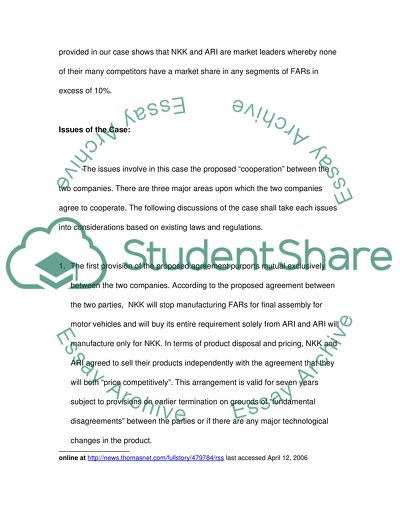Cite this document
(“Competition Law: NKK and ARI Case Study Example | Topics and Well Written Essays - 4000 words”, n.d.)
Competition Law: NKK and ARI Case Study Example | Topics and Well Written Essays - 4000 words. Retrieved from https://studentshare.org/law/1536484-llb-law-competition-law-essay
Competition Law: NKK and ARI Case Study Example | Topics and Well Written Essays - 4000 words. Retrieved from https://studentshare.org/law/1536484-llb-law-competition-law-essay
(Competition Law: NKK and ARI Case Study Example | Topics and Well Written Essays - 4000 Words)
Competition Law: NKK and ARI Case Study Example | Topics and Well Written Essays - 4000 Words. https://studentshare.org/law/1536484-llb-law-competition-law-essay.
Competition Law: NKK and ARI Case Study Example | Topics and Well Written Essays - 4000 Words. https://studentshare.org/law/1536484-llb-law-competition-law-essay.
“Competition Law: NKK and ARI Case Study Example | Topics and Well Written Essays - 4000 Words”, n.d. https://studentshare.org/law/1536484-llb-law-competition-law-essay.


